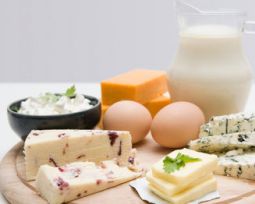No matter what stage of life you are at, if you stay committed to a healthy diet, it becomes an added advantage for you and it also reduces your risk of obesity, heart disease (heart disease in women) cancer and also diabetes.
Eating healthy food mainly increases your energy levels, which will obviously make it easy for you to deal with a variety of commitments every day.
Eating well is one of the best ways to take good care of your health. Being a woman, you have special dietary needs during each stage of your lives including adolescence, pregnancy, breast feeding and, of course, menopause.
Food and premenstrual syndrome
The interaction of hormones in your body throughout your menstrual cycle greatly affects the state of your body and mind.
Particularly in premenstrual phase, the energy intake will be generally higher and many women will also have food cravings as your periods approach.
Therefore, eating high nutritious food, particularly proteins, can help you to stop food cravings. Always remember never to use carbohydrates or other fat content foods to pacify your food cravings, which can potentially lead you to overweight and its associated health disasters.
Moodiness, tiredness and constipation are a few common symptoms of premenstrual syndrome. Take B-group vitamins, especially vitamin B6 to get better relief from symptoms.
Healthy diet for pregnant women
Optimum nutrition is very crucial during pregnancy. It doesn’t mean that you should take more food than required. Many medical experts suggest that you need only 300 extra calories every day to maintain healthy pregnancy and also to provide enough nutrition for your growing baby.
However, gaining weight is quite natural during pregnancy, but ensure that it is healthy for you and also for your baby.
Here are a few tips for you to maintain a healthy diet during pregnancy(pregnancy diet):
- Always ensure that you are consuming enough healthy protein and fat.
- Cut down caffeine and alcohol and drink plenty of healthy fluids.
- Be aware of food that is harmful to you and your baby during pregnancy.
- Eat smaller and more frequent meals.
Nutrition for menopause
Menopause is the stage where your reproductive system retires and your body produces less estrogen levels.
To make your body habituate to these hormonal changes, you should make some key changes in your routine lifestyle, including diet. Here are some significant changes you have to make in a healthy diet:
- Reduce bad dietary fat and maintain healthy weight to lower your risks of heart diseases, diabetes and blood pressure.
- Phytoestrogens are plant-based compounds that considerably enhance your cardiovascular health by lowering blood cholesterol. Try to increase your intake of phytoestrogens. They are basically found in soy products such as soy nuts, soy milk and soy beans.
- Increase your calcium intake to improve your bone health.
These are just a few nutrition facts that you should essentially know to maintain better reproductive and also overall health. Take necessary suggestions from your personal dietician or healthcare provider to maintain a balanced diet and live a healthy successful life.






